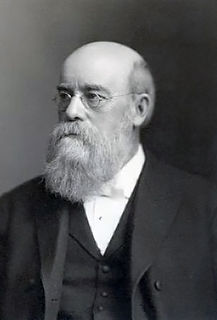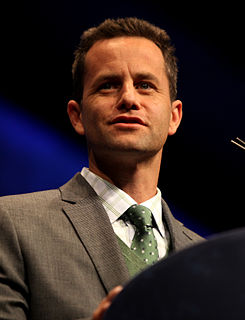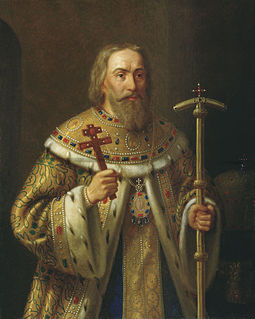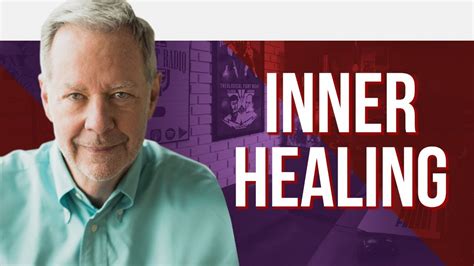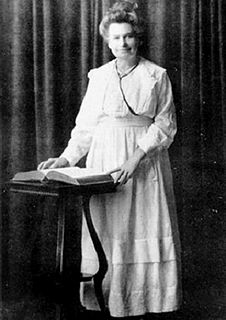A Quote by Brennan Manning
The sinners to whom Jesus directed His messianic ministry were not those who skipped morning devotions or Sunday church. His ministry was to those whom society considered real sinners. They had done nothing to merit salvation. Yet they opened themselves to the gift that was offered them. On the other hand, the self-righteous placed their trust in the works of the Law and closed their hearts to the message of grace.
Related Quotes
If you were good enough, there would be no need of confessing Christ at all. It is just because you are not good enough, that Christ says to you, "Follow me." He came not to call the righteous, but sinners to repentance. It is not the perfect people whom He wants in His church, but those who have a deep sense of their own imperfection, and who believe that His strength is made perfect in weakness.
We say, then, that Scripture clearly proves this much, that God by his eternal and immutable counsel determined once for all those whom it was his pleasure one day to admit to salvation, and those whom, on the other hand, it was his pleasure to doom to destruction. We maintain that this counsel, as regards the elect, is founded on his free mercy, without any respect to human worth, while those whom he dooms to destruction are excluded from access to life by a just and blameless, but at the same time incomprehensible judgment
It is no wonder you are tempted; on the contrary, it would be something new if you were not, because man's life is nothing but temptation, and no one is exempt from it, especially those who have given themselves to God; his own Son even passed through this trial. But if it is necessary for everyone, it is also a source of merit for those to whom God grants the grace of turning all things to good, as you do.
The Church is holy, although there are sinners within her. Those who sin, but who cleanse themselves with true repentance, do not keep the Church from being holy. But unrepentant sinners are cut off, whether visibly by Church authority, or invisible by the judgement of God, from the body of the Church. And so in this regard the Church remains holy.
At one time I was praying for the salvation of sinners, and the Saviour appeared on the cross by me, and talked with me; I laid my hand on his mangled body, and looked up in his smiling face. Another time I was meditating upon the love of God in giving his only Son to die for sinners, and of the beautiful home he was preparing for those who love him, and I seemed to float away, and was set down in the Beautiful City. Oh, the glorious sight that met my view can never be expressed by mortal tongue
Having spent time around "sinners" and also around purported saints, I have a hunch why Jesus spent so much time with the former group: I think he preferred their company. Because the sinners were honest about themselves and had no pretense, Jesus could deal with them. In contrast, the saints put on airs, judged him, and sought to catch him in a moral trap. In the end it was the saints, not the sinners, who arrested Jesus.
The Reichswirtschaftsministerium ('Reich Ministry of Economic Affairs') tells the shop managers what and how to produce, at what prices and from whom to buy, at what prices and to whom to sell. It assigns every worker to his job and fixes his wages. It decrees to whom and on what terms the capitalists must entrust their funds. Market exchange is merely a sham.
It is certain that those who have the living faith in their hearts see at once that all existence is none other than the work of the God whom they adore. But for those in whom this light is extinguished, [if we were to show them our proofs of the existence of God] nothing is more calculated to arouse their contempt. . . .
In the banking concept of education, knowledge is a gift bestowed by those who consider themselves knowledgeable upon those whom they consider to know nothing... The teacher presents himself to his students as their necessary opposite; by considering their ignorance absolute, he justifies his own existence.
This is the good and happy news, that Christ has paid for our sin, and through His suffering has redeemed us from eternal death. It is His kingdom and His ministry, to preach the Gospel to the poor; that is His purpose. For to the great and holy He cannot come. They do not wish to be counted sinners, and therefore do not need His Gospel.

